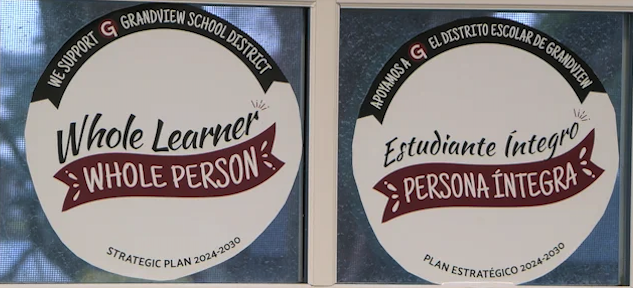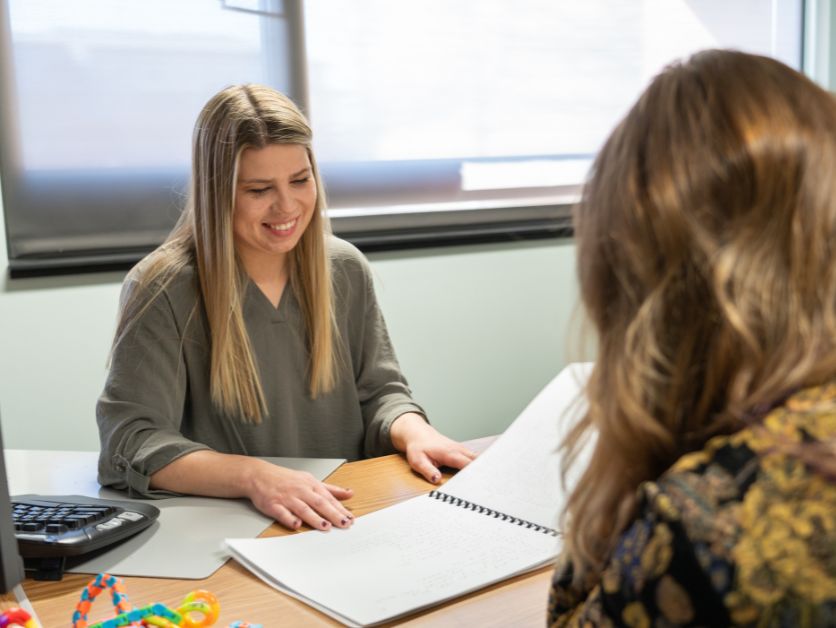
Counseling Services
FAQ
Frequently Asked Questions
-
Can anyone use your services? Who can come for services?
Our services are available to all matriculated Central Washington University students (including Center and Online student) who are enrolled in the quarter for which they are seeking services and who have paid the health and counseling fee. This includes both in-person services for our Ellensburg Campus student and teletherapy for our Center and online students who reside in Washington State. Running Start students are not eligible for ongoing services, but will be seen for a one-time support and referral appointment if they are experiencing a mental health crisis. Faculty and Staff are not eligible for our services unless they are also enrolled, matriculated students at CWU.
State laws place some restrictions on the services available to students residing outside of Washington State. If you reside outside of Washington State, please call us at 509-963-1638 to discuss your circumstances and needs.
Faculty and Staff can use our consultation services to obtain help and advice regarding a student of concern, how to make effective referrals, or to learn about community counseling options.
Any member of the CWU community who presents in crisis can be seen for a risk assessment and referral consultation regardless of eligibility for on-going services.
-
What services do you offer?
We offer a variety of services including:
- Brief individual therapy
- Group therapy
- Relationship therapy (aka couples therapy)
- Skills workshop groups
- Support groups
- Crisis intervention
- Referral assistance
- Educational presentations to student organizations/clubs and classes
Most services are available in-person or via teletherapy in order to best meet your needs. Please call for more information.
-
Why do people go to therapy?
People seek therapy for a variety of reasons. Sometimes there are events that have happened in the person's life that are hard to work through and are affecting the quality of the person' life now. Sometimes people have a difficult decision to make and they need an outside person to provide a place to reflect on their values and goals and how to make a good decision for themselves. Sometimes people have experienced discrimination and trauma related to their identities and need a safe and supportive place to heal. Sometimes people have strong feelings or interpersonally difficult situations that are getting in the way of life and need help developing new coping strategies and skills. Sometimes people are exploring their identities, values, and beliefs and want a relationship in which they can talk about these things without worrying about being judged or told how they should think or believe. Sometimes people are coping with serious and/or chronic mental or physical health concerns for themselves or a loved one and need to learn ways of coping and living with these conditions. Sometimes people just need a different perspective or way to approach a situation. There are lots of reasons to seek therapy and lots of things that therapy can help. The most important part is not how big or small your problem seems, but your desire to work on creating something new in your life.
-
Are services confidential?
Services provided by Student Counseling Service are confidential by federal and state laws. Typically, we need your written permission to share information about you and your treatment with anyone outside of Student Counseling Service staff. There are some exceptions to confidentiality, however. These are related to health and safety concerns. A staff member might be legally required to break confidentiality if one or more of the following situations are true:
- We have reason to believe that you are likely to harm yourself in a potentially lethal way and you are unwilling or unable to create an adequate safety plan to lessen this risk;
- We have reason to believe that you are likely to physically harm an identifiable other person or target;
- We have reason to suspect that a minor child, dependent adult, or elder is being abused;
- Your records are subpoenaed by a court of law;
- You are incapacitated physically or mentally to such an extent that you cannot access appropriate emergency care for yourself and we must act on your behalf for your own wellbeing.
If you are under the age of 18, the law provides discretion regarding what information is shared with a parent or guardian, but it does not allow for complete confidentiality.
If you are planning to enter a career that requires fitness for duty exams (e.g., armed forces, licensed pilot) or requires background security investigations (e.g., federal jobs with security clearance requirements), you may be required by the job/application process to provide your consent for release of records or an interview with the treating clinician. If you have job aspirations that might meet this conditions, please consult with us regarding confidentiality prior to making an appointment.
-
How much does it cost?
All of our services are covered by the medical and counseling fee that is assessed by the university. There are no additional charges for our services and we do not bill insurance. Information on student fees can be found on the Registrar's tuition and fees.
-
I heard there is a wait list for services. Is it even worth it to make an appointment?
Absolutely make an appointment with us! While it is true that some services, like individual therapy, do have a wait list, we have a variety of services to offer and want students to know about all their options for support and treatment. Additionally, even if we aren't the right provider for you, we can understand your concerns and help you figure out how to get to the right treatment for you.
-
What should I expect when I call for an appointment?
At your first appointment, your counselor will start by reviewing confidentiality, our center policies, and their licensure or training status with you. This is a great time to ask questions about anything that was not clear as you completed our initial appointment forms. The purpose of a first session is for the counselor to get to know you and your concerns, while gathering important background information that helps us make informed treatment recommendations. You can expect your counselor to ask more questions and structure the session more in a first session. There will be time to share your story and experiences that are troubling you, but the counselor won't ask you to get into all of the details at this first session. The reason for this is that the counselor needs to gather a broad amount of information so they are not missing key things that can affect which services might be best for you. In addition, the counselor you see for this first session might not be the counselor you see for on-going therapy. We try to minimize the number of times a client has to tell their full story and history, so save the details for once you formally begin treatment. At the end of the appointment, the counselor will talk with you about their recommendations for next steps in your treatment, based on what you have shared, their professional judgment, and the services we are able to provide. You and the counselor will then decide together on the next steps that are right for you.
-
How does therapy work? Can it really help?
Therapy works by creating a context in which individuals can be brave enough to speak the truth of their lives, confront difficult aspects of their past and present, honestly examine their own role in their difficulties, and learn new ways of relating to themselves, others, and the world. Therapy isn't just sitting in a room with another person who listens openly. And it isn't about blaming others or feeling bad about yourself. It is about honest examination, openness to feedback, and trying new things. Therapy comes in many forms - group, relationship, and individual. Each therapist's style and approach is as individualized as they are, but all of our work is grounded in both the science and art of psychology and counseling. If you are willing to put in the work, therapy can help with a wide variety of issues. It isn't a cure-all, but therapy can help you live a life that is more aware and with more freedom to choose how you engage with yourself, others, and the world.
-
Isn't individual therapy the best? Why do you recommend group therapy?
Individual therapy certainly has its place in the treatment of mental health concerns. However, group has advantages that just can't be found in a one-on-one setting.
- Group helps you know you are not the only one struggling. Developing a sense of common humanity with others can reduce shame, isolation, and barriers to trying new ways of being in the world.
- Group allows you a place to gain multiple perspectives and experiences from people similar and different than you.
- Your life will happen in group - and it gives you and your therapist a chance to see how your relationships happen in real time. What better way for both of you to get information about what is getting off track and then have immediate support to try something different? Groups are laboratories for gathering data about yourself and how you interact with others, making adjustments, and seeing what difference those adjustments make.
- Group helps you move toward things that are important to most people - connection, understanding, being understood, and intimacy.
Going to group can be intimidating, but the benefits - if you invest and make yourself vulnerable - are invaluable. Group can help you achieve changes at least as well as individual and in many cases, even better than individual therapy.
-
What if I just want someone to talk to?
Having someone to talk to is great! We all need that person or persons in our lives who we can talk with freely and openly. Who we know will be on our side and listen no matter what. And while these are elements of a good therapy relationship, if this is where it stops, it isn't therapy. Therapy is about helping you figure out what is wrong and hurting and develop new patterns of living that will enrich your life and help you move toward the things that are important to you. Therapy, ultimately, is about changing behaviors, whether thoughts or actual actions in the world. If your goal is just to talk, then it probably isn't the right time for therapy. If you would like to talk about stuck points in your life, past hurts, and work toward taking action to change, then you are probably ready for therapy.
-
Do you provide ESA letters?
Student Counseling Services does not provide letters for Emotional Support Animals. This practice is based on a review of the currently available scholarly literature outlining best practices regarding ESA letters. The center's short-term stepped care model is inconsistent with these best practices and thus we are unable to provide this service.
-
I heard that you record sessions. Why and do I have to be recorded?
Student Counseling Services is committed to providing CWU students with the best services possible. As part of an institution of higher education, we are also committed to education and ensuring that the mental health field if full of well-trained, qualified professionals both now and in the years to come. To meet both of these commitments, we provide training programs for graduate students in the field of psychology and mental health. These students are advanced master's students who are required to complete an extensive internship as part of their graduation requirement. We provide our doctoral and master's interns with intensive supervision and training. A component of this training is having a licensed therapist review video recordings of sessions in order to 1) ensure quality care is being provided and 2) provide feedback so that our therapists-in-training can provide even better quality care. We like to think of it as students getting two therapists for the price of one!
Video recording of your sessions requires your express permission and you will never be recorded without your knowledge. Videos are stored on a separate, secure server that only our therapists-in-training and our licensed supervisors can access. Videos are never shared with any other CWU entities or classes and are erased after they have been reviewed by and discussed with supervisors.
You do not have to consent to video recording in order to receive services at the Student Counseling Services. You have the right to request services with a provider who does not video record their sessions. At times, this request may lead to longer wait times for some services, as interns are a significant part of our staff composition.
CWU News

$4 million federal grant aimed at helping with school psychologist shortage
February 25, 2026 by Marketing and Communications

CWU Disability Services aims to provide equitable access to education
February 23, 2026 by Rune Torgersen